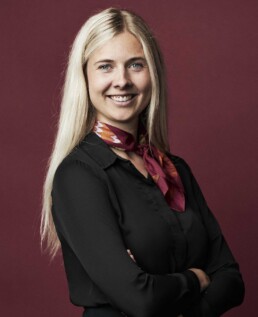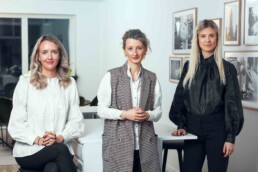Female Invest Founder: “Women Who Reach the Top Have Already Worked Twice as Hard as Men”
🇩🇰 Du finder den danske version af denne artikel her.
Exactly one year ago, Female Invest closed their Series A, raising a total of $24 million. The milestone included a record-breaking crowdfunding campaign, where they raised $1 million in just four minutes. This week, co-founder Anna Hartvigsen marked the anniversary with a LinkedIn post, highlighting that the road to equality in venture capital is still a long one.
In her post, Anna pointed out that female founders still receive less than 2% of funding, while Black founders receive under 0.5%. She emphasized that this is not just a problem for the affected groups – it impacts society as a whole. When certain founders don’t get funded, their problems remain unsolved, and innovation becomes less diverse.
The post attracted significant attention, and here we dive deeper into her insights.
“The growing misogyny on social media is spilling over into everything – including the VC ecosystem”

Anna-Sophie Hartvigsen
Why do you think the numbers haven’t shifted in recent years – despite the fact that the issue is so well documented?
“The numbers haven’t moved because the share of men at the top of the VC world has stayed the same. Roughly 90% of VC partners are men, primarily white, and they are the ones deciding who gets funded. Having pitched to more than 100 VCs and countless investment committees myself, I can tell you it makes a massive difference. If you’re pitching to a room that doesn’t understand the problem you’re trying to solve – and doesn’t represent your target audience – securing funding is incredibly difficult. At the same time, the broader culture has regressed for women: we’re seeing women’s rights rolled back in many countries, and the growing misogyny on social media (the manosphere) is spilling over into everything – including the VC ecosystem.”
“50% of the population cannot make decisions on behalf of 100%”
If you look at investors in Denmark and the Nordics – are there specific patterns in the way they evaluate founders that create bias?
“Yes, absolutely. We experienced being systematically underestimated. At dinners and pitch events with our male start-up colleagues, it was particularly obvious. They were typically asked about growth and potential, while we were questioned on risks and had to defend every aspect of our business. Constantly. If we were even asked at all. On several occasions, we were skipped over for dinners when founders around the table were introducing themselves. People assumed we didn’t have a ‘real’ company and therefore had nothing to contribute. At the same time, the demands placed on us were infinitely higher than on our male colleagues. All the way around. We constantly had to defend minor discrepancies in data from years back, and we had to dedicate two full-time staff just to provide data to VCs, because the demand for even the smallest (trivial) details was so enormous. Meanwhile, many of our male colleagues raised larger funding rounds – without even having a data room.”
What needs to change to address this? Should investors, policymakers, or founders take the first step?
“It’s not the founders. Female founders already generate twice as much revenue per invested dollar. It’s the VC world that needs to change, and quotas at the top are necessary. There are many talented men, but they are not qualified to judge companies solving problems they cannot relate to. Half the population cannot make decisions on behalf of the whole.”
“I want to challenge that question. There is generally an expectation that women who reach the top should also take on the additional burden of being spokespersons for women’s issues in general”
You mentioned that we are “running out of time.” What do you mean by that?
“Technology is advancing faster than ever, especially with AI, and the way we live is being disrupted. If women are not represented in the rooms where decisions are made, we end up with models and technologies that do not have everyone’s best interests in mind. AI is a clear example – it is both racist and sexist because it replicates existing data. We need women (and other minorities) represented in the decision-making rooms before the damage becomes irreversible – and that requires capital.”
How does Female Invest work to break this barrier – both in your own journey and for the women in your community?
“I want to challenge that question. There is generally an expectation that women who reach the top should also bear the additional burden of being spokespersons for women’s issues in general. But we often forget that women who get this far have already worked twice as hard as men to get there. Being role models and sources of inspiration should be enough. Instead of expecting us to take responsibility for every other woman’s journey, perhaps we should expect men, who get away with working half as hard, to step up too. Of course, we do everything we can at Female Invest – our entire existence is about empowering women financially. But if I said yes to all the unpaid panels, research projects, and events I’m invited to, I wouldn’t have time to run Female Invest, and we would never have made it this far.”

“The three Female Invest founders: Camilla Falkenberg, Emma Due Bitz, and Anna-Sophie Hartvigsen
WEEKLY BRIEF
Culture, business & inspiration — straight from Copenhagen to your inbox. Join over 55,500 subscribers! We send out updates once a week.


